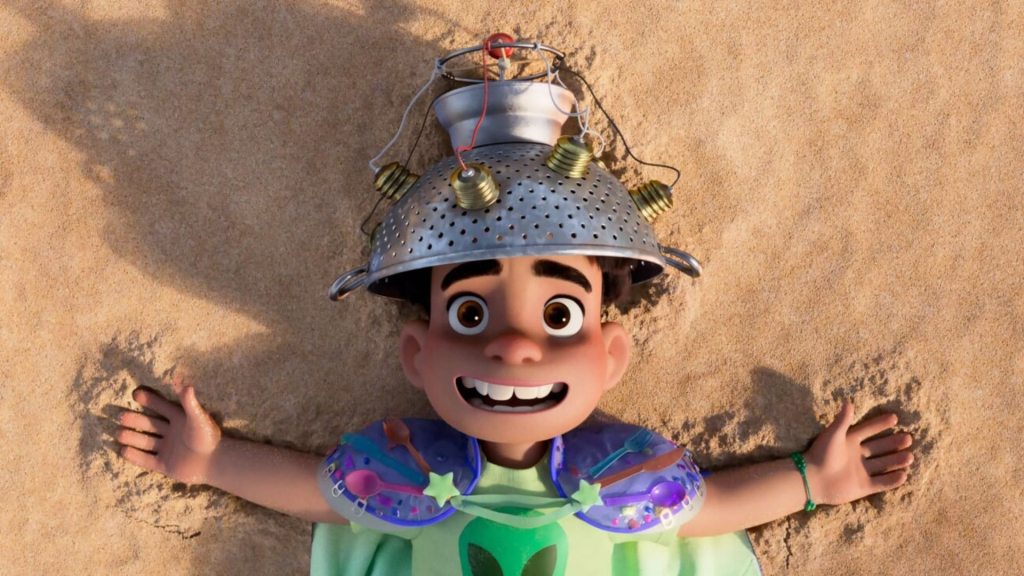Pixar’s latest animated feature has experienced a lackluster opening weekend, marking the studio’s lowest debut in its history. The film, titled “Elio,” features the adventures of a boy mistakenly recognized as the ambassador of Earth to the universe, and earned only $21 million during its opening three days at the box office.
This disappointing box office performance reflects a troubling trend for Pixar. While films linked to established franchises have successfully attracted audiences, the studio’s original stories have struggled to achieve similar success in recent years.
For example, the film “Elemental,” released in 2023, previously held the record for Pixar’s weakest opening with $29.6 million. In contrast, the sequel “Inside Out 2,” which debuted in 2024, garnered a substantial $154.2 million in domestic ticket sales, according to Comscore data.
Pixar’s struggles mirror the challenges faced by other animation studios, including Walt Disney Animation, Universal, and Paramount, which have also seen original movies falter in comparison to sequels and established franchises. This trend extends beyond animation, affecting live-action films as well.
According to Doug Creutz, an analyst with TD Cowen, the disparity in performance between original intellectual properties and sequels has widened significantly, creating challenges for studios attempting to expand their intellectual property portfolios. He noted that post-pandemic, filmmakers focused on producing familiar content in the form of sequels and adaptations of existing intellectual properties, resulting in a significant amount of franchise material flooding the market.
Data shows that out of nearly 30 animated films released in wide distribution since 2022, only about a third are classified as original stories.
A storied history
Disney’s reign in the animation sector began with the release of “Snow White and the Seven Dwarfs” in 1937, establishing the company as a dominant player for decades. The studio’s strength was bolstered by its acquisition of Pixar in 2006, which had released a string of successful films at a time when Walt Disney Animation faced several major flops.
During the subsequent decade, Pixar and Disney partnered to deliver hits such as “Frozen,” “Wreck-It Ralph,” “Zootopia,” “Inside Out,” and “Coco,” while also revisiting classic stories.
However, following the pandemic, Pixar particularly struggled. Due to health concerns and ongoing restrictions, many parents opted to keep their children at home, leading Disney to stream films like “Soul,” “Luca,” and “Turning Red” on its platform, Disney+.
This strategy faced criticism as industry insiders speculated that it contributed to dwindling interest in non-franchise films in theaters. Additionally, there were concerns that Disney’s emphasis on socially conscious storytelling alienated certain audience segments. Amid this turmoil, competition in the animation landscape intensified as families had a wider array of choices from both theaters and streaming services, making them more discerning regarding which titles to see in theaters.
“Elio” hit theaters on June 20, soon after Disney’s live-action adaptation of “Lilo & Stitch” and Universal’s “How to Train Your Dragon,” both of which continued to draw audiences at that time.
A wider trend
This competitive landscape, combined with shifting audience preferences, has led studios across Hollywood to increasingly rely on well-established stories with pre-existing fan bases.
“Sequels provide a sense of comfort for audiences,” stated Peter Csathy, chairman of Creative Media. “They’re the anti-‘Forrest Gump’ effect; you know what to expect from them.”
The film industry has historically leaned on franchise films for consistent revenue. However, the reliance on sequels has grown more pronounced, with only five original titles making it into the top 20 highest-grossing domestic releases per year since 2016. Notably, in 2024, none of the top 20 films were based on original premises.
For traditional studios like Disney, animated sequels represent one of the few reliable bets amidst a rapidly changing media landscape fraught with challenges from streaming economics, new technology leaders, and the emergence of generative AI. This volatile environment has discouraged risk-taking, validating sequels as a preferred path for studios looking to secure their investments.
There is still hope for original films like “Elio,” as they may gain traction over time. Extended theatrical runs and eventual success on streaming platforms could rejuvenate interest and lead to opportunities for sequels, tie-ins, or merchandise.
A prime example is “Encanto,” which, despite a rocky theatrical launch, found a huge audience through home streaming, prompting Disney to incorporate the film into plans for updating its Animal Kingdom theme park in Florida.
Disclosure: Comcast is the parent company of Finance Newso and NBCUniversal.


























